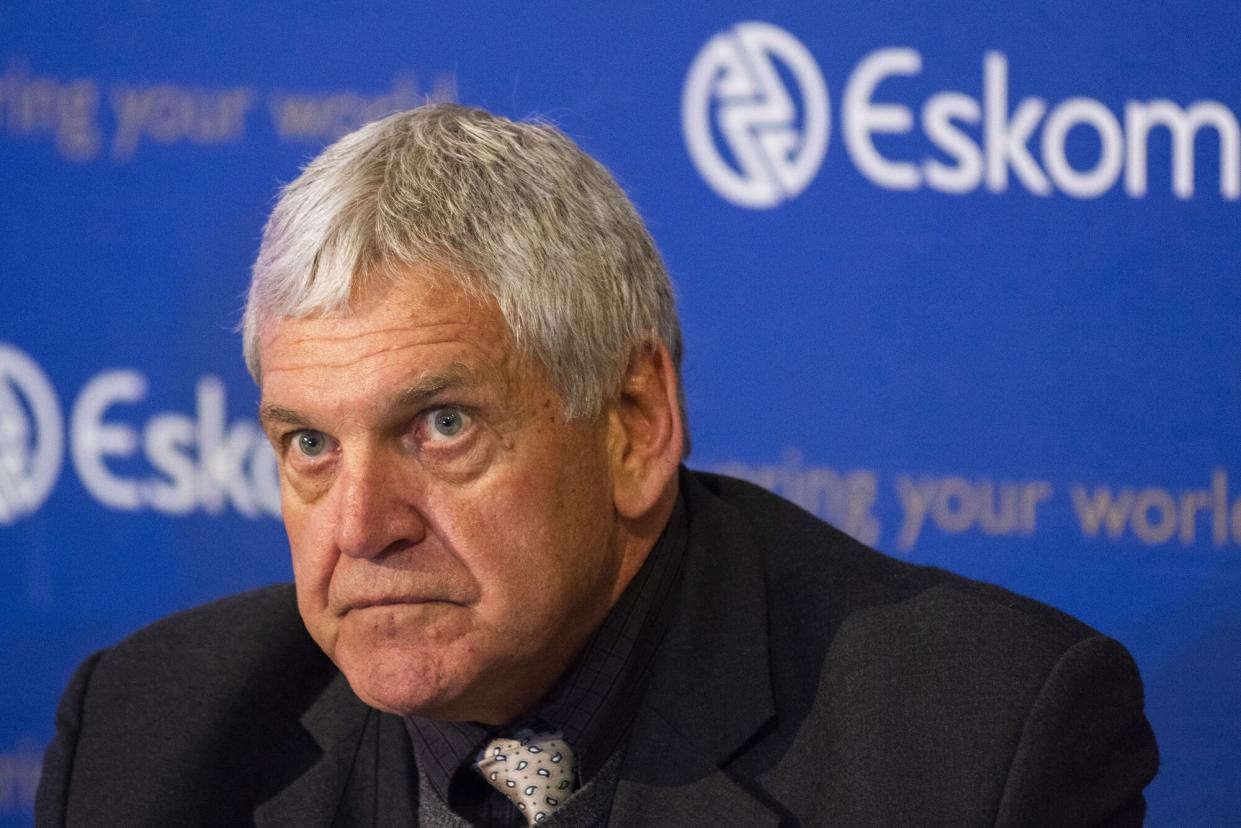Eskom’s Ex-COO Moves From Coal to Renewables Developer Mulilo

(Bloomberg) -- Jan Oberholzer, the former chief operating officer of Eskom Holdings SOC Ltd., has shifted focus from fixing coal-fired power plants to developing clean energy in a new role at South African renewables producer Mulilo Energy Holdings Ltd.
Most Read from Bloomberg
India’s Moment Has Arrived, and Modi Wants a New Global Order
Fed Set to Double Its Economic Growth Forecast After Strong US Data
Stocks Retreat After Hot ISM Fuels Fed-Hike Wagers: Markets Wrap
Soaring US Dollar Raises Alarm as China, Japan Escalate FX Pushback
China Slowdown Means It May Never Overtake US Economy, Forecast Shows
Oberholzer has been appointed as a non-executive director and chairman of Mulilo’s board, according to the company, which is majority owned by Copenhagen Infrastructure Partners. The green power producer has been awarded contracts to develop 910 megawatts of generating capacity, and has set a target of building and operating at least five gigawatts of wind, solar and battery projects by 2028.
Eskom produces the bulk of the nation’s power and repeated breakdowns at its old and poorly maintained plants have resulted in record electricity outages.
Oberholzer spent the last five years trying to improve the state-owned utility’s deteriorating performance. He said he now hopes to help South Africa add the generation capacity that it needs to help stabilize its electricity supply through his position at Mulilo.
Read More: How South Africa’s Blackouts Went From Bad to Worse: QuickTake
Oberholzer retired as Eskom COO in April but stayed on in a consulting role. He said that contract was cut short by mutual agreement when he thought he could play a more effective role outside the utility.
Andre de Ruyter left as Eskom’s chief executive officer earlier this year following a television interview in which he alleged officials of the ruling African National Congress were linked to widespread corruption at the company. He’s since been named a senior fellow at Yale University’s Jackson School of Global Affairs, where he will lecture on energy transitions. A permanent replacement is yet to named.
A push toward clean energy at Eskom is “the right thing to do” given “where the world is currently,” Oberholzer said in a phone interview. But he said he still supports extending the lives of coal-fired plants given the current situation and that the cost and environmental implications need to be taken into account.
Given Eskom’s grid will also have to expand dramatically to accommodate more generation capacity, the utility may have to change how it does business, Oberholzer said. “Maybe it’s time to allow the private participation in that environment because of the magnitude of the work that needs to happen.”
Most Read from Bloomberg Businessweek
©2023 Bloomberg L.P.



